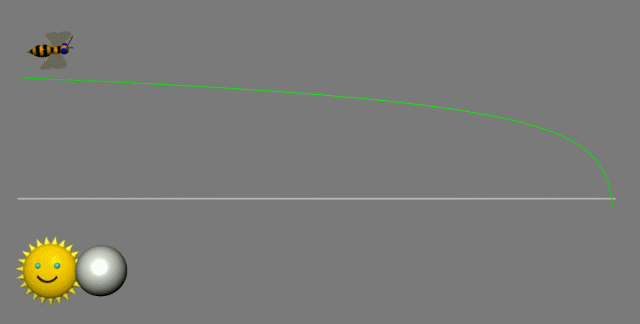Friday, October 12, 2018
Not a mystery
A nice example of REAL SCIENCE, with REAL EXPERIENCE for students, and a nicely written article.

In an unprecedented study of a solar eclipse's influence on bee behavior, researchers at the University of Missouri organized a cadre of citizen scientists and elementary school classrooms in setting up acoustic monitoring stations to listen in on bees' buzzing -- or lack thereof -- as the 2017 eclipse passed over. The results... were clear and consistent at locations across the country: Bees stopped flying during the period of total solar eclipse. "We anticipated, based on the smattering of reports in the literature, that bee activity would drop as light dimmed during the eclipse and would reach a minimum at totality," says Candace Galen, Ph.D., professor of biological sciences at the University of Missouri and lead researcher on the study. "But, we had not expected that the change would be so abrupt, that bees would continue flying up until totality and only then stop, completely."Shouldn't be unexpected. Perception is logarithmic. As the intensity dropped linearly, the bee's sense of light stayed nearly constant for a while, then dropped off abruptly.

Labels: bee, Carver, Experiential education
